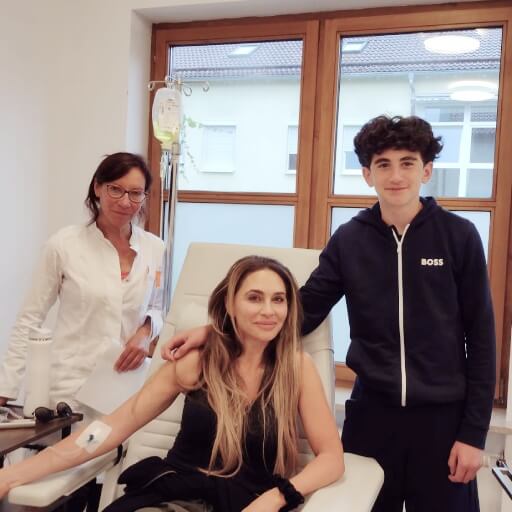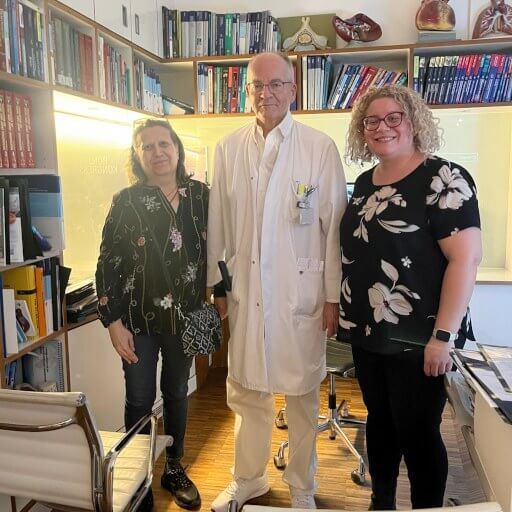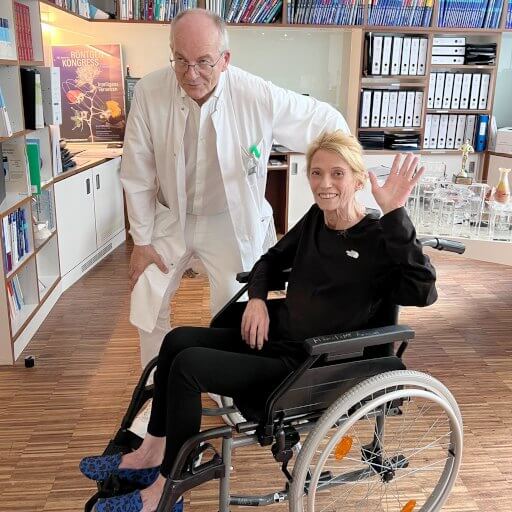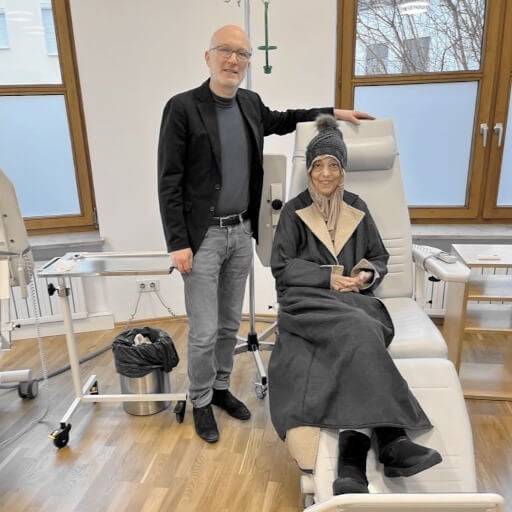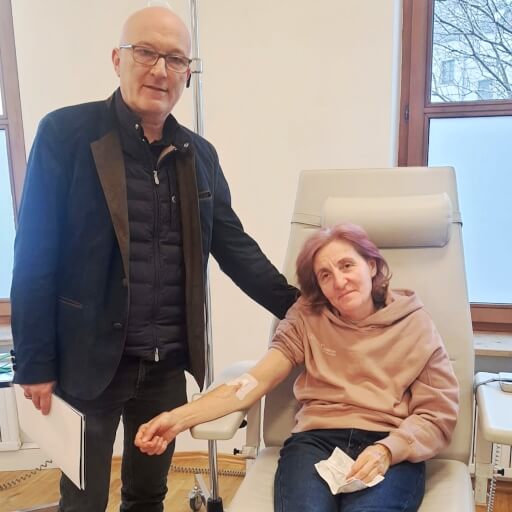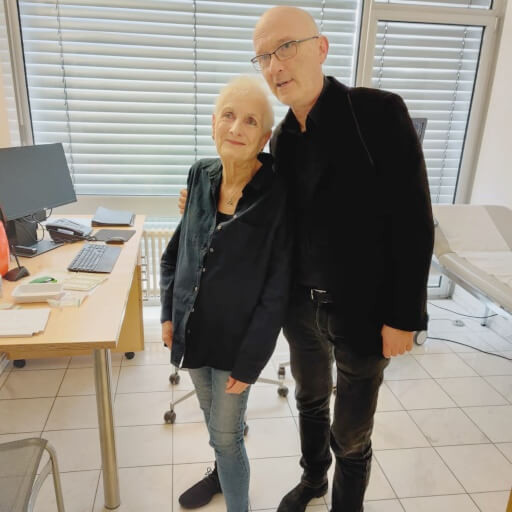Breast cancer is the most commonly diagnosed cancer worldwide, with 2.3 million new cases and nearly 670,000 deaths reported in 2022. According to the World Health Organization, the global burden is expected to rise by almost 40% by 2050, reaching over 3.2 million new cases annually. Women in high-income countries have about a 1 in 12 lifetime risk of developing breast cancer, compared to 1 in 27 in low-income regions [1].
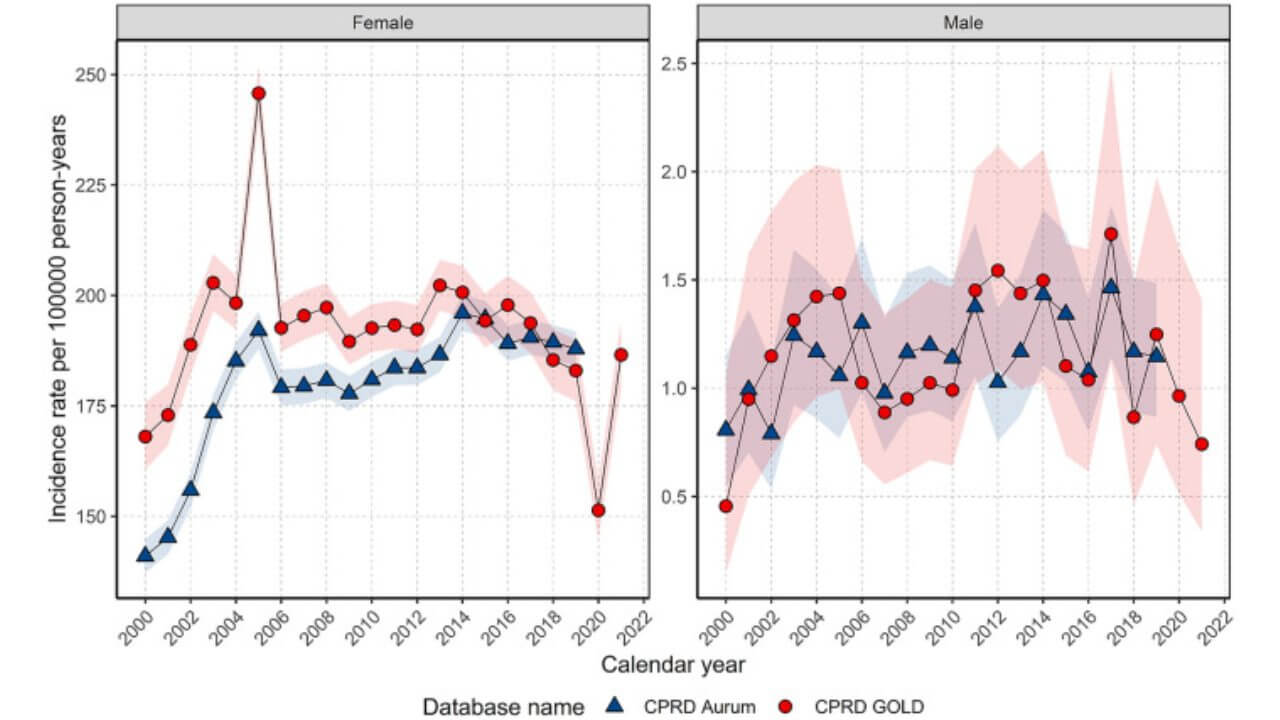
Against this global backdrop, breast cancer treatment in Germany stands out for its high survival rates, advanced technologies, and comprehensive cancer care. German clinics combine early and accurate breast cancer diagnosis with minimally invasive techniques, breast-conserving surgery, and breast reconstruction, supported by systemic therapy, radiation therapy, and innovative treatments. This integrated approach ensures that breast cancer patients benefit from some of the most effective oncology practices in the world.
Conventional Breast Cancer Treatment in Germany
Conventional treatments remain the foundation of breast cancer care in Germany and are continuously refined through active oncology research, which also supports clinical trials of cancer vaccines and other new therapies. Patients typically receive surgical treatment such as breast cancer surgery, often followed by radiation therapy, hormone therapy, or systemic therapy to destroy cancer cells and reduce the risk of recurrence. German clinics focus on preserving healthy tissues through breast-conserving surgery and offer breast reconstruction when needed. This comprehensive approach makes conventional breast cancer treatment in Germany both highly effective and patient-oriented.
Surgical Treatment For Breast Cancer
Surgical treatment of a breast tumor in Germany aims to achieve the complete removal of atypical tissues, including the primary tumor, tumor tissues, and any potentially affected lymph nodes, as well as the correction of postoperative cosmetic defects. If necessary, a surgical procedure for tumor removal is immediately supplemented with breast reconstruction, which avoids repeated anesthesia and improves quality of life for breast cancer patients.
The modifications of organ-preserving surgical procedures include cryoablation, sectoral resection with lymphadenectomy, tumorectomy, and lumpectomy. These types of breast cancer surgery in Germany are typically performed to remove neoplasms less than 25 mm in size. As a rule, surgeons excise the tumor along with several nearby lymph nodes, which helps prevent recurrence of the malignant process. To improve accuracy, German clinics use advanced technologies such as the FDA-approved MarginProbe device, which detects residual tumor cells in the surgical field and ensures complete removal.
Radical mastectomy in Germany is reserved for cases when invasive breast cancer has spread to the pectoral muscles and axillary lymph nodes. In other situations, surgeons prefer more sparing modifications of mastectomy:
- Skin-sparing mastectomy, which facilitates subsequent autologous breast reconstruction
- Nipple-sparing mastectomy, which additionally preserves the nipple and areola
- Simple mastectomy, which preserves axillary lymph nodes and pectoral muscles
Radiation Therapy For Breast Cancer
German clinics apply multiple modes of radiation therapy as part of breast cancer treatment in Germany:
- Preoperative radiotherapy (intensive or delayed) can destroy cancer cells located on the periphery of the tumor, reducing the risk of spreading malignant cells to distant parts of the body. A delayed course may also shrink the tumor, making breast cancer surgery possible in cases previously considered inoperable.
- Postoperative radiotherapy, performed 2–4 weeks after surgical treatment, targets preserved lymph nodes (supraclavicular or parasternal) and reduces the risk of disease progression.
- Intraoperative radiotherapy (intrabeam technique) is used during organ-preserving operations, irradiating the tumor bed and axillary lymph nodes immediately after tumor removal.
- Independent radiation therapy may be chosen when surgical treatment is contraindicated or at the patient’s request.
- Interstitial radiotherapy can complement external radiation therapy for nodular breast carcinomas, minimizing damage to surrounding healthy tissues.
If indicated, whole radiation therapy for breast cancer can be replaced by partial breast irradiation, reducing the number of sessions and potential side effects.
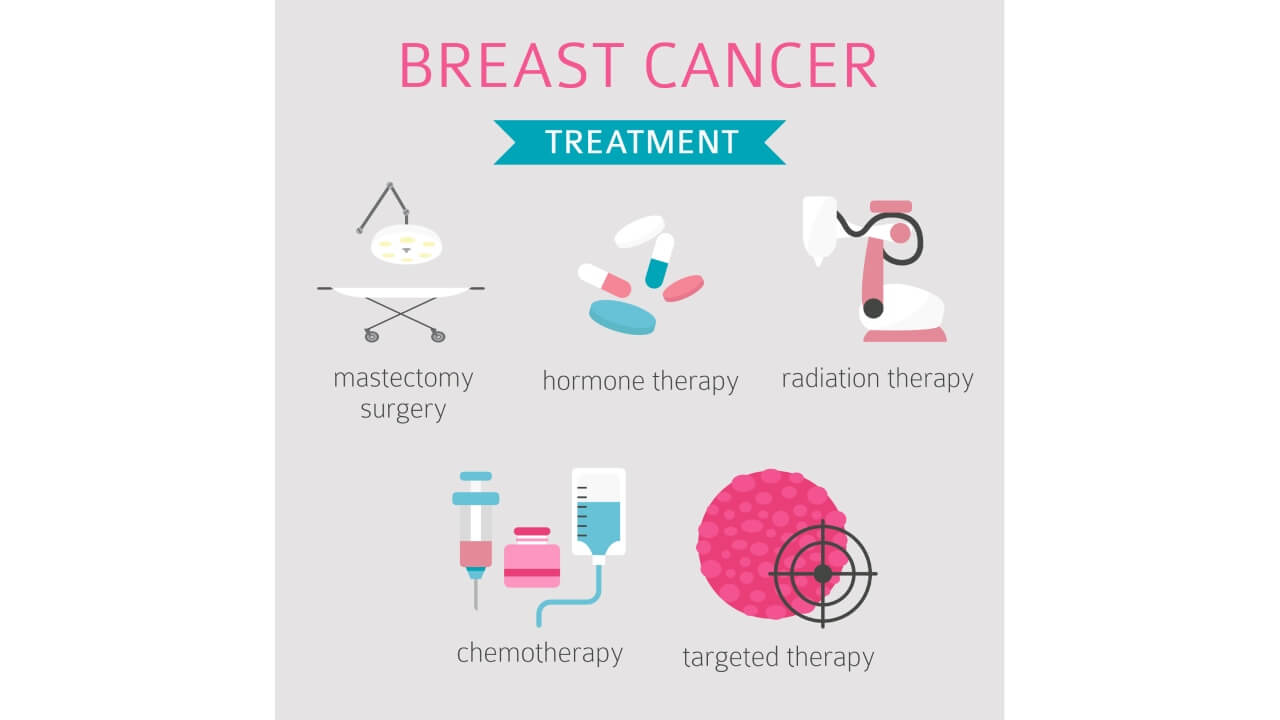
Chemotherapy For Breast Cancer
Chemotherapy for breast cancer remains one of the most widely used systemic treatments in Germany. It can be given in two ways:
- Neoadjuvant chemotherapy (before surgery) reduces tumor size, allowing surgeons to perform breast-conserving surgery instead of mastectomy
- Adjuvant chemotherapy (after surgery) helps destroy cancer cells that may remain in the body and prevents recurrence
German oncologists rely on modern agents, which show the best results in clinical trials. Postmenopausal women with ER-positive tumors often respond well to adjuvant chemotherapy, sometimes in combination with hormone therapy.
To choose the most effective systemic therapy regimen, German clinics employ prognostic genomic testing:
- Oncotype Dx™ (analysis of 21 genes to assess relapse risk)
- MammaPrint® (expression profile of 70 genes)
- PAM50 test (50 genes associated with cancer recurrence)
These advanced technologies support personalized cancer care and help doctors design systemic therapy that minimizes side effects while maximizing control over tumor growth.
Hormone Therapy For Breast Cancer
Hormone therapy is a cornerstone of conventional breast cancer treatment, especially for tumors sensitive to estrogen and progesterone. About 50–70% of breast carcinomas are hormone-dependent, and German oncologists carefully evaluate receptor expression before prescribing therapy. This ensures treatment targets tumor cells effectively and spares healthy tissues.
Types of hormone therapy used in Germany include:
- Antiestrogens block hormonal receptors and suppress tumor growth
- Aromatase inhibitors reduce estrogen synthesis and are particularly effective in postmenopausal women
- Androgens lower estrogen levels and may be prescribed for metastatic breast cancer resistant to other therapies
Before treatment, German clinics conduct immunohistochemical testing for ER (estrogen) and PR (progesterone) receptors on tumor cells. This precision ensures that systemic treatment is tailored to each patient, aligning with Germany’s focus on personalized oncology and the latest treatment methods.
Innovative Breast Cancer Treatment in Germany
Targeted Therapy for Breast Cancer in Germany
Targeted therapy has transformed breast cancer care in Germany by focusing directly on tumor cells and minimizing harm to surrounding healthy tissues. Instead of broadly affecting the whole body, these drugs block specific molecular pathways responsible for tumor growth and disease progression. Patients with HER2-positive or hormone receptor-positive tumors benefit significantly from such systemic treatment, often in combination with adjuvant chemotherapy or hormone therapy.
German clinics also run clinical trials that test new therapies aimed at resistant tumor tissues, providing access to cutting-edge drugs before they become widely available. For many breast cancer patients, targeted therapy is a key element in reducing recurrence and improving long-term survival.
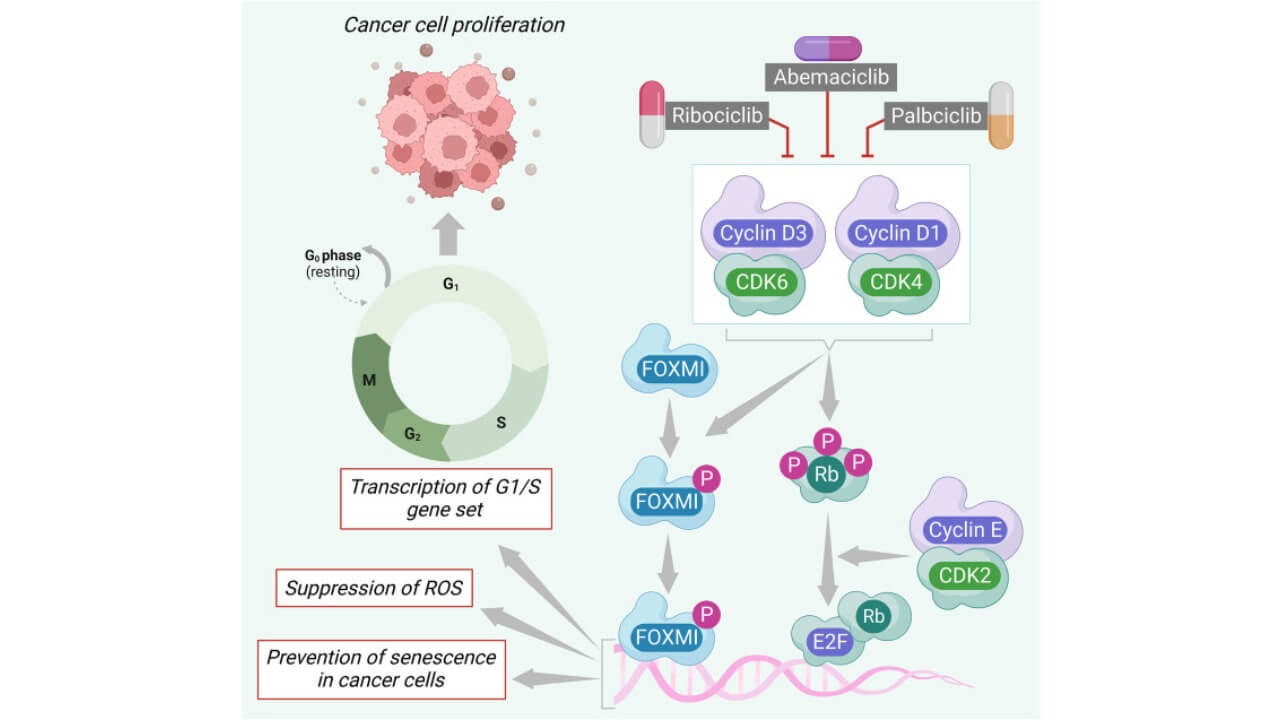
Dendritic Cell Therapy and Personalized Immunotherapy for Breast Cancer in Germany
One of the most promising fields in German gynecological oncology is dendritic cell therapy. This form of personalized immunotherapy uses the patient’s own immune cells to stimulate the immune system against malignant cells. Dendritic cells act as "messengers," training immune cells to recognize and destroy cancer cells within tumor tissues.
The scientific importance of dendritic cells was highlighted in 2011, when Ralph Steinman was awarded the Nobel Prize in Physiology or Medicine for discovering their pivotal role in controlling the body’s immune system [5]. Building on this breakthrough, German clinics have developed dendritic cell vaccination strategies tailored to each patient’s tumor profile. These advanced therapies are particularly valuable for breast cancer patients with limited options after conventional treatments, including those with triple-negative breast cancer.
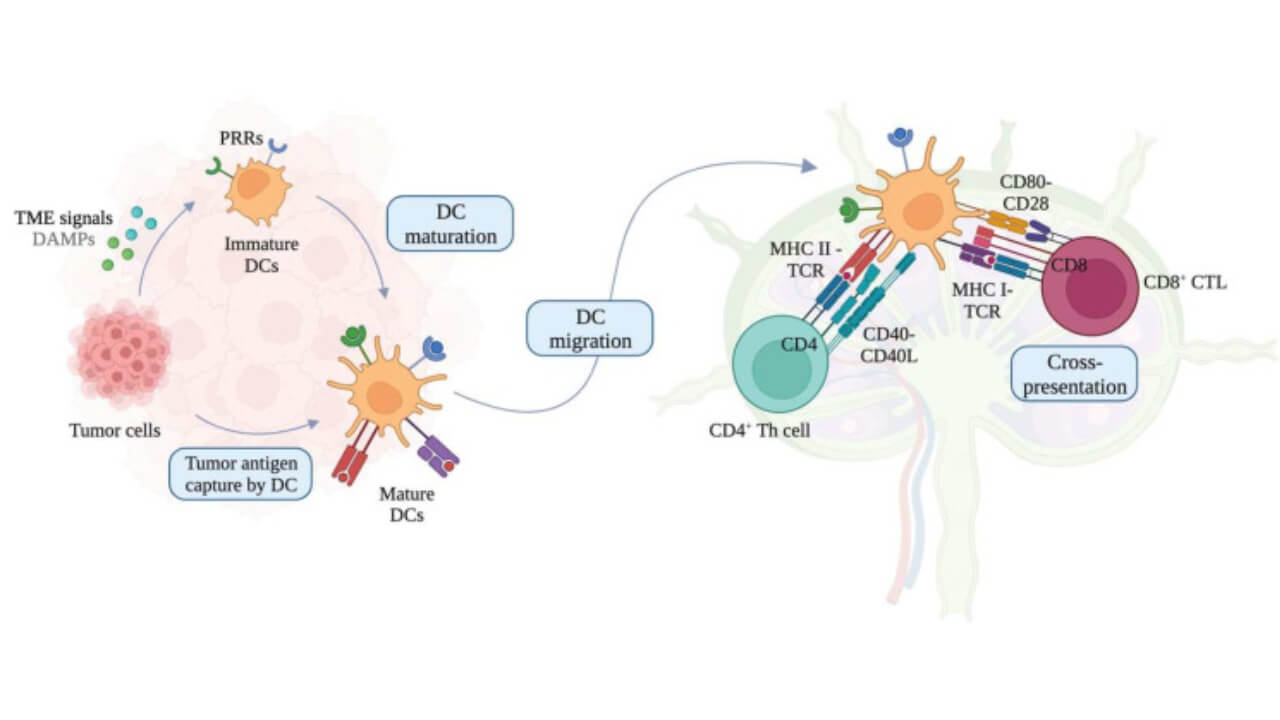
TACE for Breast Cancer
TACE is an interventional oncology technique increasingly applied in the treatment of metastatic breast cancer in Germany. The procedure delivers chemotherapy drugs directly into the blood vessels feeding the tumor, while simultaneously blocking these vessels to limit tumor growth. By concentrating the drug inside the malignant process, TACE destroys cancer cells locally while reducing systemic side effects.
German clinics use TACE in selected cases where standard systemic therapy is less effective, especially in metastatic disease that has spread to the liver. As part of innovative breast cancer treatment in Germany, TACE complements other advanced therapies, offering new hope for cancer patients who require personalized and minimally invasive techniques.
Regional Chemotherapy for the Treatment of Breast Cancer
Regional chemotherapy in Germany – isolated thoracic perfusion – delivers chemotherapy exclusively to your chest region while protecting the rest of your body. Doctors insert balloon catheters through vessels in your groin, threading them up to your aorta and vena cava. Once positioned beneath your diaphragm, the balloons inflate, temporarily separating your chest's blood circulation from the rest of your body.
During the 15-minute regional chemotherapy for breast cancer, concentrated medications circulate only through your chest – reaching tumors at doses that would be toxic if delivered systemically. Blood flows naturally within this isolated zone, carrying drugs directly to the cancer. After perfusion ends, hemofiltration cleanses your blood for 45 minutes before the balloons deflate and normal circulation resumes.
Breast tumors typically have excellent blood supply, making them ideal for this approach. Germany's specialized centers offer the most refined techniques, particularly for locally relapsed disease causing pain or distress. The interview with prof. Aigner, the developer of this method, explores regional chemotherapy for breast cancer and introduces electrochemotherapy next.
Electrochemotherapy in Breast Cancer
Electrochemotherapy (ECT) uses brief electrical pulses to open temporary pores in cancer cell membranes, allowing 80-fold greater drug absorption than with standard delivery. You receive general anesthesia while doctors position electrode needles around your tumor at 2.5-3 centimeter spacing. A computer synchronizes electrical pulses with your heartbeat to prevent cardiac interference.
During electro-chemotherapy, concentrated chemotherapy flows through arterial infusion or isolated thoracic perfusion while electrical pulses create membrane openings. The procedure takes minutes. Regional drug delivery combined with enhanced cellular uptake achieves what systemic therapy cannot – particularly for resistant tumors.
A study of 14 triple-negative breast cancer patients with locally relapsed disease averaging 7.6 centimeters showed 13 achieved tumor shrinkage; 4 became surgical candidates [6]. And just imagine that all these women had failed multiple prior treatments.
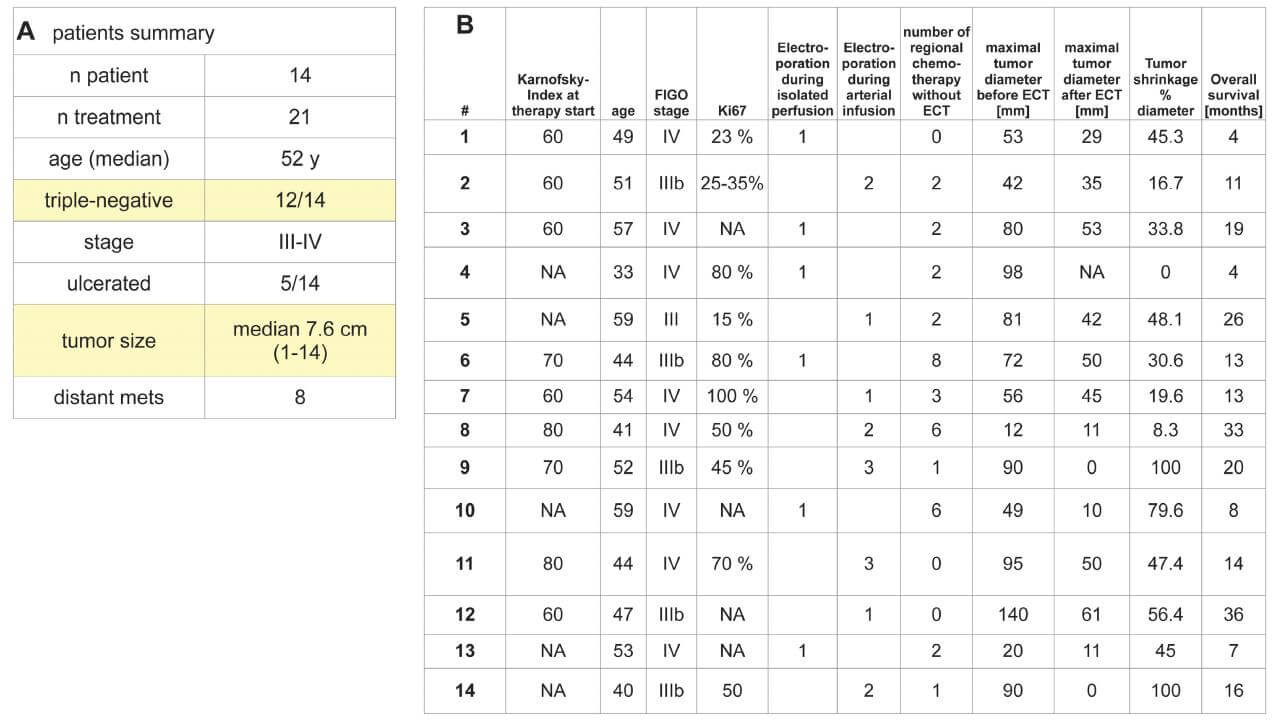
The cost of electrochemotherapy varies by center, and electrochemotherapy cost reflects specialized equipment needs. However, electro-chemotherapy may avoid major surgery while controlling resistant disease.
Leading hospitals for breast cancer and the cost of treatment in Germany
Leading university hospitals for breast cancer treatment based on the statistics and success rates for breast cancer treatment in Germany, are:
- University Hospital Tuebingen, Department of Adult and Pediatric Gynecology, Mammology, Obstetrics
- University Hospital Ulm, Department of Obstetrics, Adult and Pediatric Gynecology
- University Hospital Halle (Saale), Department of Gynecology and Mammology
For patients looking at breast cancer programs cost, breast cancer treatment in Germany has one of the most competitive prices in developed healthcare systems. Compared to the United States and the United Kingdom, German hospitals provide high-quality care at significantly lower costs, without compromising results.
| Treatment Method | Germany | United Kingdom | United States |
|---|---|---|---|
| Breast-conserving surgery (lumpectomy + sentinel node biopsy) | €14,300-€23,500 | €35,000-€55,000 | €65,000-€85,000 |
| Breast reconstruction after mastectomy | €14,200-€23,700 | €40,000-€60,000 | €70,000-€100,000 |
| Chemotherapy (full course) | €80,000-€150,000 | €90,000-€165,000 | €100,000-€180,000 |
| Radiation therapy (standard 25-30 sessions) | €28,000-€42,000 | €35,000-€65,000 | €40,000-€80,000 |
As is evident, breast cancer treatment cost in Germany, including the cost of breast cancer treatment is the fourth stage in Germany, is 30-50% lower compared to the US while maintaining world-class medical quality. In addition, compared to the UK, German clinics provide faster access to treatment without long waiting lists.
What's Included in the Price of Breast Cancer Treatment
The breast cancer treatment package in Germany usually includes:
- Diagnostics: mammography, ultrasound, MRI, PET-CT, biopsy
- Surgery: breast-conserving surgery, mastectomy, or reconstructive surgery
- Medications: chemotherapy drugs, targeted therapy, and hormonal treatment
- Hospital stay: accommodation, nursing care, and meals
- Follow-up therapy: check-ups, rehabilitation, and aftercare
Optional services include advanced oncoplastic surgery, rehabilitation programs, and second opinions from top specialists in the best hospitals for breast cancer treatment in Germany.
Breast Cancer Treatment Success Story in Germany
Anna Scoric from Ukraine faced a challenging moment when she was diagnosed with breast cancer. Seeking the best care, she chose breast cancer treatment in Germany at Marien Hospital Duesseldorf, under the expertise of Prof. Dr. Giagounidis. Beginning in February 2022, Anna received chemotherapy, radiation therapy, and follow-up examinations, benefiting from Germany’s advanced systemic therapy and comprehensive breast cancer care.
Every step of her treatment was carefully coordinated. Timely appointments and adjustments, even during disruptions like a COVID infection, were handled smoothly by medical tourism coordinators Maria Stern and Natalie Korner. Professional interpreters supported Anna not only in the clinic but also during everyday activities, ensuring she felt confident and secure throughout her journey.
Anna highlights how the combination of precise breast cancer diagnosis, innovative therapies, and personal attention made her treatment experience exceptional. For her, Germany offered a medical environment where cutting-edge cancer care meets patient-focused support, giving her both hope and real progress in her fight against the disease.
International Cancer Care: Patient Stories with Booking Health
A Medical Journey: Every Step of the Way With Booking Health
Finding the best treatment strategy for your clinical situation is a challenging task. Being already exhausted from multiple treatment sessions, having consulted numerous specialists, and having tried various therapeutic interventions, you may be lost in all the information given by the doctors. In such a situation, it is easy to choose a first-hand option or to follow standardized therapeutic protocols with a long list of adverse effects instead of selecting highly specialized innovative treatment options.
To make an informed choice and get a personalized cancer management plan, which will be tailored to your specific clinical situation, consult medical experts at Booking Health. Being at the forefront of offering the latest medical innovations for already 12 years, Booking Health possesses solid expertise in creating complex management programs in each individual case. As a reputable company, Booking Health offers personalized treatment plans for breast cancer with direct clinic booking and full support at every stage, from organizational processes to assistance during treatment. We provide:
- Assessment and analysis of medical reports
- Development of the medical care program
- Selection of a suitable treatment location
- Preparation of medical documents and forwarding to a suitable clinic
- Preparatory consultations with clinicians for the development of medical care programs
- Expert advice during the hospital stay
- Follow-up care after the patient returns to their native country after completing the medical care program
- Taking care of formalities as part of the preparation for the medical care program
- Coordination and organization of the patient's stay in a foreign country
- Assistance with visas and tickets
- A personal coordinator and interpreter with 24/7 support
- Transparent budgeting with no hidden costs
Health is an invaluable aspect of our lives. Delegating management of something so fragile yet precious should be done only to experts with proven experience and a reputation. Booking Health is a trustworthy partner who assists you in pursuing stronger health and a better quality of life. Contact our medical consultant to learn more about the possibilities of personalized treatment with innovative methods for breast cancer with leading specialists in this field.
Frequently Asked Questions of Our Patients About Breast Cancer Treatment in Germany
Send request for treatmentBreast cancer treatment in Germany includes surgery, breast-conserving surgery, chemotherapy, radiation therapy, targeted therapy, hormone therapy, and innovative options like IORT and immunotherapy for breast cancer in Germany. Clinics offer personalized plans for each patient.
Early-stage breast cancer treatment in Germany focuses on precise breast cancer diagnosis, organ-preserving procedures like lumpectomy, breast-conserving surgery in Germany, and targeted systemic therapy to minimize recurrence and preserve quality of life.
Yes, breast-conserving surgery in Germany is widely available. Surgeons use advanced surgical techniques such as lumpectomy and sectoral resections, often combined with IORT in Germany, to reduce tumor recurrence while preserving healthy tissues.
Intraoperative radiation therapy (IORT) delivers focused radiation during surgery. German clinics offer IORT in Germany as part of breast-conserving surgery, protecting healthy tissue while destroying residual cancer cells in the tumor bed.
Not always. Chemotherapy for breast cancer is prescribed based on tumor type, stage, and genetic markers. Some HR-positive breast cancer or early-stage patients may receive hormone therapy or targeted approaches instead.
Targeted therapy for breast cancer in Germany includes HER2-directed drugs for HER2-positive breast cancer, PARP inhibitors for triple-negative breast cancer (TNBC), and other systemic agents designed to attack tumor cells while sparing healthy tissue.
Yes, immunotherapy for breast cancer in Germany is available for selected patients, including those with triple-negative breast cancer (TNBC). German clinics combine it with systemic therapy for personalized immunotherapy approaches.
Advantages of breast cancer treatment in Germany include modern clinics, experienced oncologists, advanced surgical techniques, access to innovative therapies, and comprehensive breast cancer care for international patients.
Booking Health support helps in organizing treatment abroad, arranging medical visas, translation services, appointments with experienced oncologists, and access to clinics for breast cancer treatment in Germany.
Breast cancer treatment cost in Germany varies by therapy type. Booking Health provides guidance on affordable treatment abroad, including surgery, systemic therapy, and follow-up care, helping international patients plan budgets.
Yes, breast cancer treatment for international patients in Germany is widely available. Clinics offer medical visas, translation services, and tailored care to ensure global patients receive timely and high-quality treatment.
Hormone therapy for breast cancer in Germany targets HR-positive breast cancer, using antiestrogens, aromatase inhibitors, or androgens. It is often combined with surgery or targeted therapy for optimal disease control.
Yes, patients can request a second opinion in Germany. Booking Health helps arrange consultations with experienced oncologists, review of tumor tissues, and recommendations for advanced surgical techniques or systemic treatments.
Breast cancer can be "visible". Common symptoms include a lump / thickening in the breast, changes in breast size or shape, nipple discharge, skin changes, persistent breast or nipple pain. Regular self-exams for red flags are important.
Conventional treatments are surgery (i.e. breast-conserving or mastectomy), radiation therapy. Chemotherapy is also used in separate cases; hormones and targeted therapy are administered after the additional tumor testing. Dendritic cell immunotherapy in form of the vaccines is a suitable addition for all disease stages.
The cost of breast cancer treatment in Germany depends on the stage of the disease and the type of therapy required. On average, the breast cancer surgery cost in Germany starts at about €25,000, chemotherapy courses begin at around €80,000, and a full course of radiation therapy typically starts at €28,000.
The price usually covers a comprehensive package of medical services. This includes advanced diagnostics, surgical treatment, medications such as chemotherapy or hormonal therapy, the patient's hospital stay, and follow-up medical care after the completion of the main therapy.
Several factors determine the final cost of treatment. The most important ones are the stage and type of cancer, the type and aggressiveness of the tumor, the hospital and specialists chosen, the therapy methods applied, and whether breast reconstruction surgery is included in the treatment plan.
Compared to other developed countries, Germany offers breast cancer treatment at significantly lower costs. Prices are generally lower than in the United States and comparable to or slightly lower than in the United Kingdom, with the added benefit of faster access to care and shorter waiting times in German hospitals.
Yes, treatment is usually less expensive when breast cancer is diagnosed at an early stage. Early-stage cases often require only organ-preserving surgery combined with radiation therapy, which is far more cost-effective than advanced-stage treatment that may involve mastectomy, chemotherapy, and breast reconstruction.
To receive a personalized cost estimate, patients can send their medical reports directly to a German hospital for evaluation. Another option is to request a detailed estimate through Booking Health, which coordinates with leading hospitals and provides transparent pricing information.
Yes, breast cancer treatment in Germany is considerably more affordable than in the United States and often less expensive than in the United Kingdom. On average, German clinics charge 30-50% less than US hospitals while maintaining world-class medical standards and offering faster access to therapy compared to the UK.
Choose treatment abroad and you will for sure get the best results!
Authors:
This article was edited by medical experts, board-certified doctors Dr. Nadezhda Ivanisova, and Dr. Bohdan Mykhalniuk. For the treatment of the conditions referred to in the article, you must consult a doctor; the information in the article is not intended for self-medication!
Our editorial policy, which details our commitment to accuracy and transparency, is available here. Click this link to review our policies.
Sources:
[1] World Health Organization. Breast cancer. https://www.who.int/news-room/fact-sheets/detail/breast-cancer
[2] Nicola L Barclay, Edward Burn, Antonella Delmestri et al. Trends in incidence, prevalence, and survival of breast cancer in the United Kingdom from 2000 to 2021. Sci Rep. 2024 Aug 17;14:19069. doi: 10.1038/s41598-024-69006-1. [DOI] [PMC free article]
[3] Feng Ye, Saikat Dewanjee, Yuehua Li, Niraj Kumar Jha et al. Advancements in clinical aspects of targeted therapy and immunotherapy in breast cancer. Front Endocrinol (Lausanne). Mol Cancer. 2023 Jul 6;22:105. doi: 10.1186/s12943-023-01805-y. [DOI] [PMC free article]
[4] Kyu-Won Lee, Judy Wai Ping Yam, Xiaowen Mao. Dendritic Cell Vaccines: A Shift from Conventional Approach to New Generations. Cells. 2023 Aug 25;12(17):2147. doi: 10.3390/cells12172147. [DOI] [PMC free article]
[5] Nobel Prize. The Nobel Prize in Physiology or Medicine 2011 – Ralph Steinman. https://www.nobelprize.org/prizes/medicine/2011/steinman/facts/
[6] Aigner K, Selak E, Pizon M, et al. Arterial infusion and isolated perfusion in combination with reversible electroporation for locally relapsed unresectable breast cancer. Cancers (Basel). 2024;16(23):3991. doi:10.3390/cancers16233991. [DOI]
Read:
Breast cancer treatment with dendritic cells in Germany
Article menu:
- Conventional Breast Cancer Treatment in Germany
- Innovative Breast Cancer Treatment in Germany
- Leading hospitals for breast cancer and the cost of treatment in Germany
- Breast Cancer Treatment Success Story in Germany
- A Medical Journey: Every Step of the Way With Booking Health
- Frequently Asked Questions of Our Patients About Breast Cancer Treatment in Germany
Don't know where to start?
Contact Booking Health
